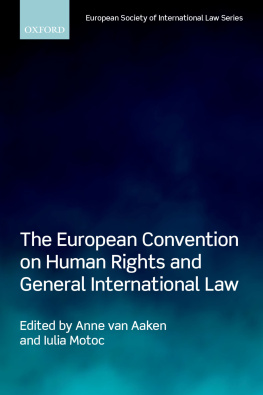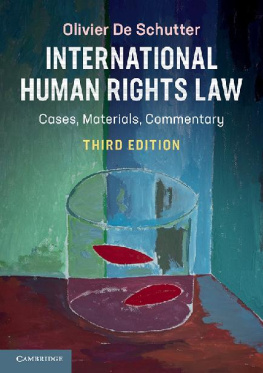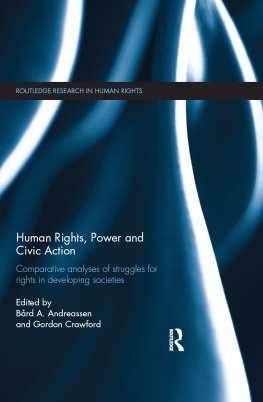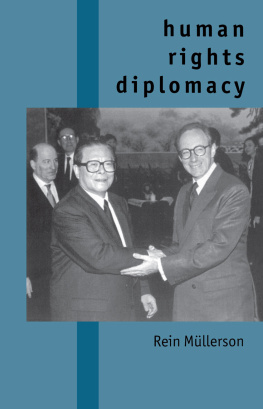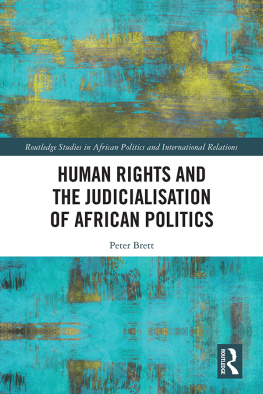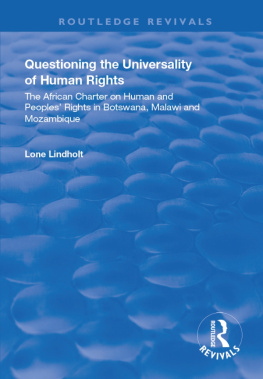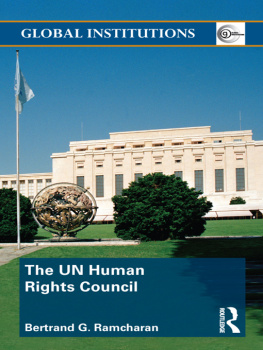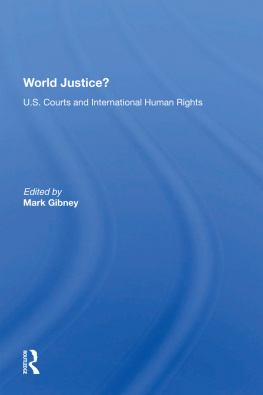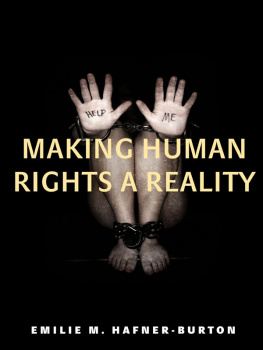NATIONAL LAW AND INTERNATIONAL HUMAN RIGHTS LAW
National Law and International Human Rights Law
Cases of Botswana, Namibia and Zimbabwe
Onkemetse Tshosa
University of Botswana, Botswana
First published 2001 by Dartmouth Publishing Company and Ashgate Publishing
Reissued 2018 by Routledge
2 Park Square, Milton Park, Abingdon, Oxon OX14 4RN
711 Third Avenue, New York, NY 10017, USA
Routledge is an imprint of the Taylor & Francis Group, an informa business
Copyright Onkemetse Tshosa 2001
All rights reserved. No part of this book may be reprinted or reproduced or utilised in any form or by any electronic, mechanical, or other means, now known or hereafter invented, including photocopying and recording, or in any information storage or retrieval system, without permission in writing from the publishers.
Notice:
Product or corporate names may be trademarks or registered trademarks, and are used only for identification and explanation without intent to infringe.
Publishers Note
The publisher has gone to great lengths to ensure the quality of this reprint but points out that some imperfections in the original copies may be apparent.
Disclaimer
The publisher has made every effort to trace copyright holders and welcomes correspondence from those they have been unable to contact.
A Library of Congress record exists under LC control number: 2001086754
ISBN 13: 978-1-138-72223-1 (hbk)
ISBN 13: 978-1-315-19375-5 (ebk)
Contents
AC Appeal Cases
ACHPR African Charter on Human and Peoples Rights
ACHR American Convention on Human Rights
AJ Acting Judge
AJA Acting Judge of Appeal
ALL ER All England Law Reports
BLR Botswana Law Reports
CA Court of Appeal
CJ Chief Justice
CPEA Criminal Procedure and Evidence Act
DTA Democratic Turnhalle Alliance
EA East African Law Reports
ECHR European Convention on Human Rights and Fundamental Freedoms
ECtHR European Court of Human Rights
EHRR European Human Rights Reports
Ex. D Exchequer Division
HC High Court
HCTLR High Commissioner Territory Law Reports
HRC Human Rights Committee
ICCPR International Covenant on Civil and Political Rights
ICESCR International Covenant on Economic, Social and Cultural rights
ICJ International Court of Justice
IHRR International Human Rights Reports
ILM International Legal Materials
ILO International Labour Organisation
IR Irish Law Reports
JA Justice of Appeal
JP Judge President
KB Kings Bench Division
LRC Law Reports of the Commonwealth
NLP National Land Policy
NmHC Namibian High Court
NmSC Namibian Supreme Court
NR Namibian Law Reports
OAU Organisation of African Unity
PCIJ Permanent Court of International Justice
PLAN Peoples Liberation Army of Namibia
QB Queens Bench Division
RLR Rhodesian Law Reports
SA South African Law Reports
SADC Southern African Development Community
SLR Scottish Law Reports
SR Southern Rhodesia
SWA South West Africa
SWAPO South West African Peoples Organisation
Swazi. LR Swaziland Law Reports
UDI Unilateral Declaration of Independence
UDHR Universal Declaration of Human rights
UN Charter United Nations Charter
UNITA National Union for the Total Independence of Angola
UNTS United Nations Treaty Series
WLR Weekly Law Reports
ZAPU Zimbabwe African Peoples Unity
ZHC Zimbabwean High Court
ZLR Zimbabwe Law Reports
ZSC Zimbabwean Supreme Court
International legal norms generally and especially international human rights law play a pivotal role in the protection of national human rights law. In particular, rules and principles of international human rights law have an enriching and enhancing effect on national norms. This enrichment can be assessed through an examination of various judicial pronouncements of national courts. The enterprise is well exemplified by an analysis of case law from the three jurisdictions that form the basis of the book. This book is based on my Ph. D thesis submitted to the Faculty of Law of the University of Edinburgh. The was awarded in 1999.
In writing this book I received assistance and encouragement from many individuals and institutions. First and foremost, my gratitude goes to Professor Tiyanjana Maluwa of University of Cape Town, formerly of the Department of Law at the University of Botswana, who initially helped me to develop a general interest in international law and its interplay with national legal systems. I am also deeply indebted to Dr Stephen Neff, my principal supervisor, for his guidance, encouragement and invaluable advice, and allocating me a lot of his time, often, at the expense of his busy schedule. Similarly, my gratitude extends to Professor William Gilmore, my second supervisor, for his invaluable suggestions and support. Also, I am greatly indebted to Professor Alan Boyle for his advice on the work and financial support which enabled me to conduct research in universities in the United Kingdom especially SOAS and University of London. I should also express my thanks to my fellow research students particularly those in the Department of Public International Law for their encouragement. I benefited much from the discussion I had with them. Of these, David Berry was particularly helpful.
Additionally, I wish to express my sincere thanks and appreciation to the staff of the Edinburgh University Law Library and George Square Library for their much needed assistance. Also, I wish to express my deep thanks to the staff of the Legal Assistance Centre, and the libraries of the University of Botswana and the Faculty of Law of the University of Zimbabwe for allowing me access to their library facilities.
It would be remiss of me if I did not register my deep gratitude to the Government of Botswana for affording me the opportunity, through the University of Botswana, to commence and complete my studies at the University of Edinburgh by granting me the scholarship. Without the scholarship, I would not have been able to embark upon and finish my studies, and hence the production of this book.
Last but by no means the least, I must thank my friends and family, who encouraged me to complete this work. Most deeply I thank my fiance, Maureen Modiradilo for her warm support and resolve to stand by my side while I was busy trying to bring this work to fruition.
Onkemetse Tshosa
University of Botswana
Part I:
Introduction
The theoretical standpoints that have been advanced with an endeavour to explain and clarify the relationship between international law and municipal law are monism and dualism. Treatises on these theories are copious and such an analysis can only be brief.1 These theories provide the background of, and philosophical clarity to, the analysis. They help to articulate the precise status and role of international human rights law in municipal law. The study, however, demonstrates that, in reality, an examination of the inter-relation of international law to municipal law purely on the basis of these theories is an oversimplification. It does not accord with actual State practice.


